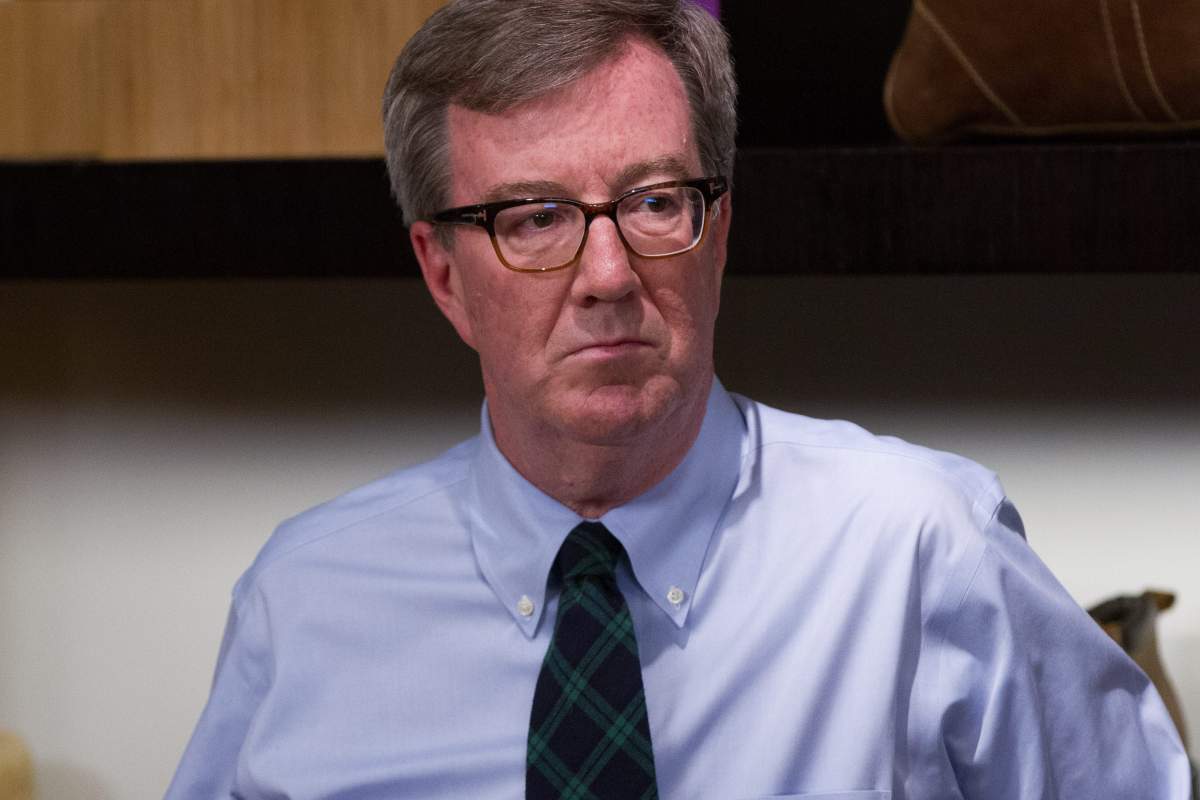Jim Watson, Ottawa’s longest-serving mayor, is ending his run in 2022.

The mayor announced in a statement Friday morning that he will not seek re-election in next year’s municipal election.
Watson won three consecutive terms as mayor of Ottawa starting in 2010 and said in a statement Friday morning that he knew in 2018 that, if successful, that term would be his final in the mayor’s seat at city council.
“Serving as mayor for the past 12 years has been the greatest honour of my life,” he wrote in a post announcing his decision.
“As I travel around our vast and beautiful city, I truly believe that we are leaving our city and its communities in better shape. … I have given and will continue to give this job every single ounce of energy I have to give. I look forward to my final months in office, and I thank the residents of Ottawa for the honour to serve you to the best of my abilities,” he wrote.
The 60-year-old veteran politician said that now was the time to move on from elected office if he was going to have “one more career,” but did not offer any immediate clues Friday about where he might head next.
Watson was first elected to the public service in 1991, first serving as city councillor and later mayor of Ottawa before its amalgamation with surrounding municipalities.
In 2003 he was elected to provincial government with the Liberal Party of Ontario. He held a series of cabinet roles between then and 2010 before returning to municipal politics.
Watson listed a number of city-building projects in a retrospective of his time in office and positioned himself as a champion who got work going on developments that were “stuck in neutral.” He cited the Ottawa Art Gallery, Lansdowne Park and the Shaw Centre as a few of those legacies.
But few projects are as closely associated with Watson’s tenure as the problem-plagued light-rail transit system, which was in motion when he returned to the mayor’s chair but was initially procured, opened, operated and maintained under his watch.

He acknowledged the rough start to the Confederation Line in his message but said he believed better days were ahead for the system.

Get daily National news
“The start of this new transportation system was frustrating beyond belief and a massive letdown to its users. While we are now seeing an improvement in the reliability of the service, we must continue to hold our partners to account. I truly believe we have turned the corner with much better, reliable and consistent service for the people of Ottawa,” he wrote.
Watson holds a few specific bona fides during his time in politics: he was the youngest mayor of pre-amalgamation Ottawa when he was elected in 1997; he became the longest-serving mayor of the city earlier this year; and he is Ottawa’s first openly gay mayor, coming out in an op-ed in the Ottawa Citizen in 2019.

Watson thanked his friends and family for being his “rock” when he faced homophobia and attacks in real life and on social media, which he called “both a blessing and a curse” in politics.
While Watson has enjoyed strong support in each of his electoral decisions since defeating incumbent Larry O’Brien with more than twice the share of the vote in 2010, his time in office has at times come with controversy — much of it stemming from his off-the-cuff style on Twitter.
The outspoken mayor has used Twitter to publicly denounce initial mock-ups for the Chateau Laurier extension and, most recently, compared demonstrators blocking traffic in protest increases to the Ottawa police budget to anti-vaccine protesters disrupting hospital operations.
He was the subject of a lawsuit in 2018 when some Ottawa residents contended that his blocking them on social media was a violation of their charter right to free speech. Watson eventually conceded that this Twitter account was a public space and agreed to unblock his critics.
Watson has been no stranger to backroom political feuds as well, with a notable battle with Ottawa Senators owner Eugene Melnyk cited as one of the key reasons the former withdrew from a plan to build a new downtown arena for the local NHL club at LeBreton Flats.
The mayor has also been accused of crafting a “Watson club” at the current term of city council, the combination of a bloc of councillors who regularly vote alongside him on key decisions and committee appointments allegedly diminishing representation from his critics.
His successful arguments at council are among the reasons he’s been successful in maintaining his electoral promises of a property tax cap on the municipal budget for the past 12 years.
Despite this, Watson’s record and contributions to Ottawa were praised when he announced the end of his mayoral run on Friday from friends and critics alike.
Prime Minister Justin Trudeau thanked Watson for being a “strong voice for the people of Ottawa” in a response to the mayor’s statement on Twitter.
Somerset Coun. Catherine McKenney and Gloucester-Southgate Coun. Diane Deans — two of the mayor’s regular opponents on council who both announced Friday they’d run to replace him in 2022 — both praised Watson’s ability to connect with residents in separate tweets.
Former Ottawa Centre MP and federal cabinet minister Catherine McKenna, who reiterated Friday that she won’t be running for the mayorship next year, said Watson “should be proud of the many big things” he’s done to build up the city.
Toronto Mayor John Tory said he will miss working with Watson at the Big City Mayors’ table.








Comments
Want to discuss? Please read our Commenting Policy first.